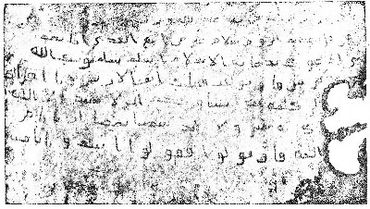Template:Pictorial-Islam-options: Difference between revisions
Jump to navigation
Jump to search
| [checked revision] | [checked revision] |
mNo edit summary |
mNo edit summary |
||
| Line 1: | Line 1: | ||
<noinclude>Also see: [[Template:Pictorial-Islam]]</noinclude><!-- HELP NOTES: Each option tag handles one random story --><choose> | <noinclude>Also see: [[Template:Pictorial-Islam]]</noinclude><!-- HELP NOTES: Each option tag handles one random story --><choose> | ||
<option weight="1">{{Pictorial-Islam|1=Muhammad in Other Scriptures|2=[[File:Bhavishya Purana.jpg|215px|link=Muhammad in Other Scriptures]]|3=Apologists often mention that Muhammad was predicted in other religious scriptures, but what they fail to convey accurately is the nature of many of these references. | |||
In the Bhavishya Purana, one of the eighteen major Hindu Puranas, Muhammad is depicted as a reincarnated demon, Islam as a demonic religion, and its followers as "the corrupters of religion". | |||
In the Haran Gawaitha, a Mandaean text which tells the history of the Mandaeans and their arrival in Iraq as Nasoreans from Jerusalem, Muhammad is referred to as "the Son-of-Slaughter, the Arab", "the most degraded of false prophets", "the Seal of prophets of the Lie", who "converted people to himself by the sword". | |||
And in the Kālachakra Tantra, a ninth century Tibetan Buddhist text, Muhammad is referred to as a demonic incarnation and a "false impostor". Muslims are described as invading "barbarians", bringing with them the barbarian religion, a religion of violence that also advocates savage behavior. ([[Muhammad in Other Scriptures|''read more'']])}}</option> | |||
Revision as of 03:45, 5 February 2014
Also see: Template:Pictorial-Islam
|
